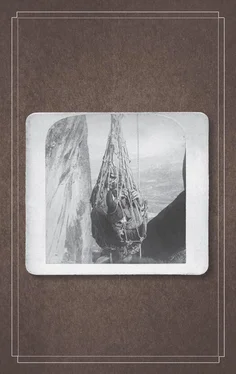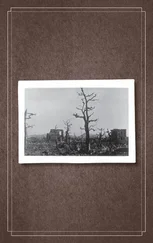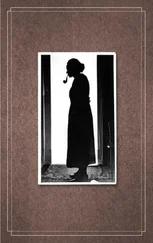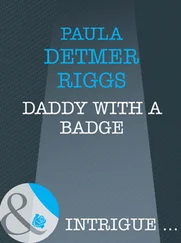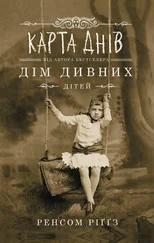She laughed. “Like it? Well, that’s too bad,” she said with a coy smile. “I’d stick out like a sore thumb.” Then a pained expression crossed her face, as if she felt guilty for laughing—for having had even a moment of fun, given all that had happened to us and everything yet to be resolved—and she ducked behind the screen again.
I felt it, too: the dread, the weight of the horrors we’d seen, which replayed themselves in an endless, lurid loop in my mind. But you can’t feel bad every second , I wanted to tell her. Laughing doesn’t make bad things worse any more than crying makes them better. It doesn’t mean you don’t care, or that you’ve forgotten. It just means you’re human. But I didn’t know how to say this, either.
When she came out again, she had on a sacklike blouse with ripped sleeves and a broomstick skirt that brushed the top of her feet. (Much more urchin like.) She’d kept the red shoes, though. Emma could never resist a touch of glitter, however small.
“And this?” said Horace, waving a poofy orange wig he’d found.
“How’s this going to help anyone ‘blend in with the normals’?”
“Because it seems we’re going to a carnival,” said Hugh, looking up at a poster on the wall that advertised one.
“Just a moment!” Horace said, joining Hugh beneath the poster. “I’ve heard of this place! It’s an old tourist loop.”
“What’s a tourist loop?” I asked.
“Used to be you could find them all across peculiardom,” Millard explained, “placed strategically at times and locations of historical import. They made up a sort of Grand Tour that was once considered an essential part of any well-bred peculiar’s education. This was many years ago, of course, when it was still relatively safe to travel abroad. I didn’t realize there were any left.”
Then he got quiet, lost in memories of a better time.
When we’d all finished changing, we left our twentieth-century clothes in a heap and followed Emma through another door, out into an alleyway stacked with trash and empty crates. I recognized the sounds of a carnival in the distance: the arrhythmic wheeze of pipe organs, the dull roar of a crowd. Even through my nerves and exhaustion, I felt a jangle of excitement. Once, this was something peculiars had come from far and wide to see. My parents had never even taken me to Disney World.
Emma gave the usual instructions: “Stay together. Watch Jacob and me for signals. Don’t talk to anyone, and look no one in the eye.”
“How will we know where to go?” asked Olive.
“We’ll have to think like ymbrynes,” Emma said. “If you were Miss Wren, where would you be hiding?”
“Anywhere but London?” said Enoch.
“If only someone hadn’t murdered the pigeon ,” Bronwyn said, staring bitterly at Miss Peregrine.
The headmistress stood on the cobblestones looking up at us, but no one wanted to touch her. We had to keep her out of sight, though, so Horace went back into the disguising room and fetched a denim sack. Miss Peregrine wasn’t enthusiastic about this arrangement, but when it became clear that no one was going to pick her up—least of all Bronwyn, who seemed entirely disgusted with her—she climbed inside and let Horace knot the top closed with a strip of leather.
* * *
We followed the drunken sound of the carnival through a snarl of cramped lanes, where from wooden carts vendors hawked vegetables and dusty sacks of grain and freshly killed rabbits; where children and thin cats skulked and prowled with hungry eyes, and women with proud, dirty faces squatted in the gutter peeling potatoes, building little mountains with the tossed-away skins. Though we tried very hard to slink by unnoticed, every one of them seemed to turn and stare as we passed: the vendors, the children, the women, the cats, the dead, milk-eyed rabbits swinging by their legs.
Even in my new, period-appropriate clothes, I felt transparently out of place. Blending in was as much about performance as about costume, I realized, and my friends and I carried ourselves with none of the slump-shouldered, shifty-eyed attitude that these people did. In the future, if I wanted to disguise myself as effectively as the wights, I’d have to sharpen my acting skills.
The carnival grew louder as we went, and the smells stronger—overcooked meats, roasting nuts, horse manure, human manure, and the smoke from coal fires all mixing together into something so sickly sweet that it thickened the very air. Finally, we reached a wide square where the carnival was in full, rollicking swing, packed with masses of people and brightly colored tents and more activity than my eyes could take in at once. The whole scene was an assault on my senses. There were acrobats and ropedancers and knife-throwers and fire-eaters and street performers of every type. A quack doctor pitched patent medicines from the back of a wagon: “A rare cordial to fortify the innards against infective parasites, unwholesome damps, and malignant effluvia!” Competing for attention on an adjacent stage was a loudmouthed showman in coattails and a large, prehistoric-looking creature whose gray skin hung from its frame in cascading wrinkles. It took me ten full seconds, as we threaded the crowd past the stage, to recognize it as a bear. It had been shaved and tied to a chair and made to wear a woman’s dress, and as its eyes bulged in its head, the showman grinned and pretended to serve it tea, shouting, “Ladies and gentlemen! Presenting the most beautiful lady in all of Wales!”—which earned him a big laugh from the crowd. I half hoped it would break its chains and eat him, right there in front of everyone.
To combat the dizzying effect of all this dreamlike madness, I reached into my pocket to palm the smooth glass of my phone, eyes closed for a moment, and whispered to myself, “I am a time traveler. This is real. I, Jacob Portman, am traveling in time.”
This was astonishing enough. More astonishing, perhaps, was the fact that time travel hadn’t broken my brain; that by some miracle, I had not yet devolved into a gibbering crazy person ranting on a street corner. The human psyche was much more flexible than I’d imagined, capable of expanding to contain all sorts of contradictions and seeming impossibilities. Lucky for me.
“Olive!” Bronwyn shouted. “Get away from there!” I looked up to see her yank Olive away from a clown who had bent down to talk to her. “I’ve told you time and again, never talk to normals!”
Our group was large enough that keeping it together could be a challenge, especially in a place like this, full of distractions tailor-made to fascinate children. Bronwyn acted as den mother, rounding us up every time one of us strayed to get a closer look at a stall of brightly colored pinwheels or steaming boiled candy. Olive was the most easily distractible, and often seemed to forget that we were in serious danger. It was only possible to keep so many kids in line because they were not actually kids—because there was some older nature inside them, warring against and balancing their childish impulses. With actual children, I’m sure it would’ve been hopeless.
For a while we wandered aimlessly, looking for anyone who resembled Miss Wren, or anywhere it seemed peculiars were likely to hide. But everything here seemed peculiar—this entire loop, with all its chaotic strangeness, was perfect camouflage for peculiars. And yet, even here, people noticed us, their heads turning subtly as we passed. I started to get paranoid. How many of the people around us were spies for the wights—or wights themselves? I was especially wary of the clown, the one Bronwyn had pulled Olive away from. He kept turning up. We must’ve passed him five times in as many minutes: loitering at the mouth of an alley, staring down from a window, watching us from a tented photo booth, his mussed hair and horrific makeup clashing bizarrely with a backdrop painting of bucolic countryside. He seemed to be everywhere at once.
Читать дальше
